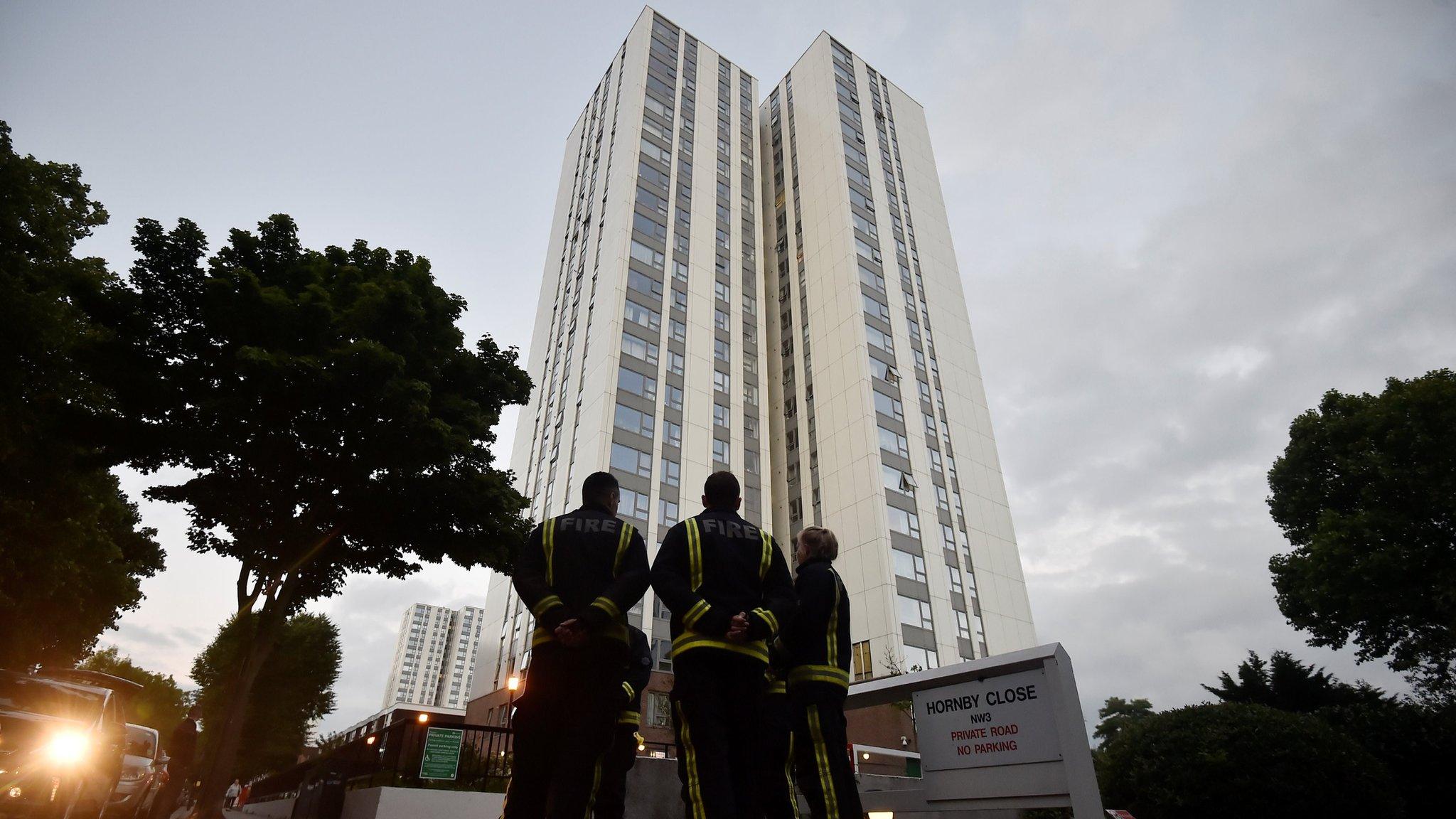Grenfell fire: Tower blocks 'safe' despite failing tests
- Published
Carl Sargeant says the flats remain "safe places to be" pending further advice
Tower blocks where cladding has failed safety tests remain "safe places to be" according to the Welsh Government.
However, Communities Secretary Carl Sargeant said the failure in tests of four blocks in Swansea was "cause for some concern".
He said ministers were awaiting advice from the UK government on whether to carry out further tests or relocate any residents.
Swansea council said the blocks which failed tests met current regulations.
Samples of the same type of cladding used on Grenfell Tower are being tested from seven social housing tower blocks in Wales at the request of the Welsh Government.
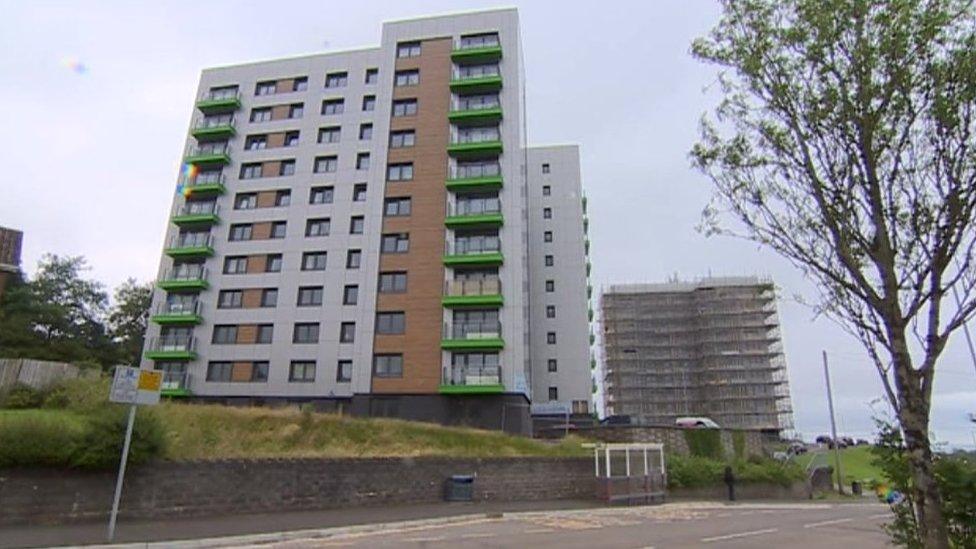
Cladding from Clyne Court, Sketty, failed a safety test but meets regulations, Swansea council said
Swansea council said the British Research Establishment (BRE) looked at samples from four of its 11 high-rise blocks which have aluminium composite material (ACM).
The results of samples from three blocks at Clyne Court, Sketty, and one at Jefferys Court, Penlan, come after 149 high-rises in England also failed.
Mr Sargeant told BBC Wales the results of samples from the blocks did not give "the full picture".
He said the Welsh Government was awaiting further advice from the UK government's advisory panel on whether to move beyond testing samples to testing "the integrity of the building panel system".
He said the fire service had given "some assurance around the building quality and standards" of blocks in Swansea and Newport where samples had been sent for testing.
"They're presuming the buildings to be in a good state of affairs and therefore conditionally, as a holding process, they're safe places to be in at the moment." he said.
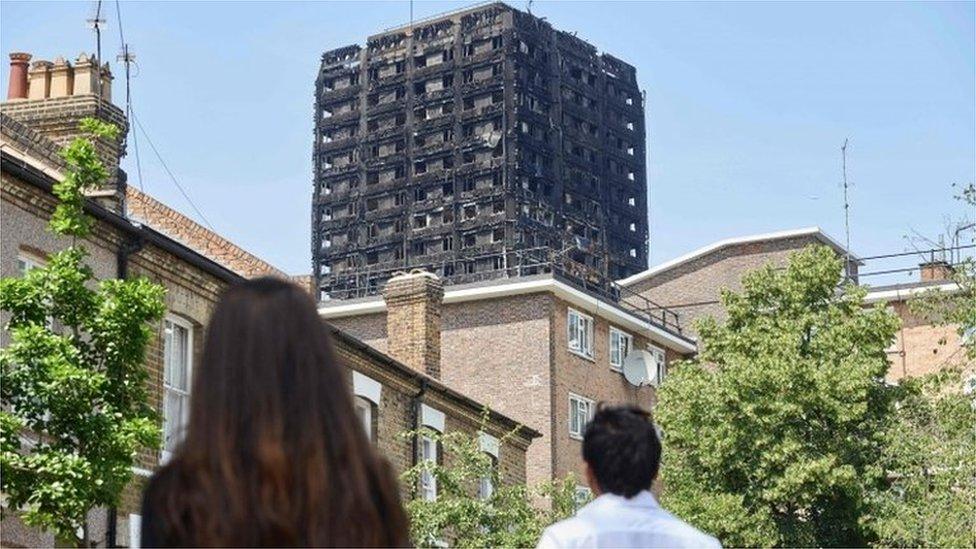
The Grenfell Tower disaster has prompted a range of fire safety actions from the Welsh Government
Swansea council's deputy leader Clive Lloyd told BBC Radio Wales' Good Morning Wales programme on Monday the council's main priority was to seek "absolute reassurance" for its tenants but added: "The failure of the tests at this level wasn't a huge surprise.
"What has been difficult for us and for all other local councils is that the tests that are being carried out by BRE and the ones that we failed along with other councils, we don't know what standards they are being tested at.
"So it's very difficult for us to respond, and that's why we're continuing to work with the Welsh Government and the UK government to find out what those standards are and what we need to do to rectify this particular failure.
"But that information hasn't been forthcoming unfortunately.
"Once we get that information and advice from Welsh Government on what we need to do, we will do what is absolutely necessary and our residents can be reassured to that.
"If that means taking the cladding down, then so be it."
Swansea council said extra fire safety checks were being carried out and tenants were being kept informed.
Results of tests on samples from tower blocks in Newport have not yet come through.
Meanwhile Cardiff council said it was "actively considering" retrofitting sprinklers in its high rise flats, although a spokesman said "a number of practical issues need to be fully taken into account in making changes to existing buildings before any work is taken forward".
The council also plans to upgrade fire doors at its low-rise flats around the city.
Bron Afon Community Housing, which has three high-rise blocks in Torfaen, said they were all retrofitted with sprinklers. Samples from the blocks were also being sent off for testing.
- Published3 July 2017
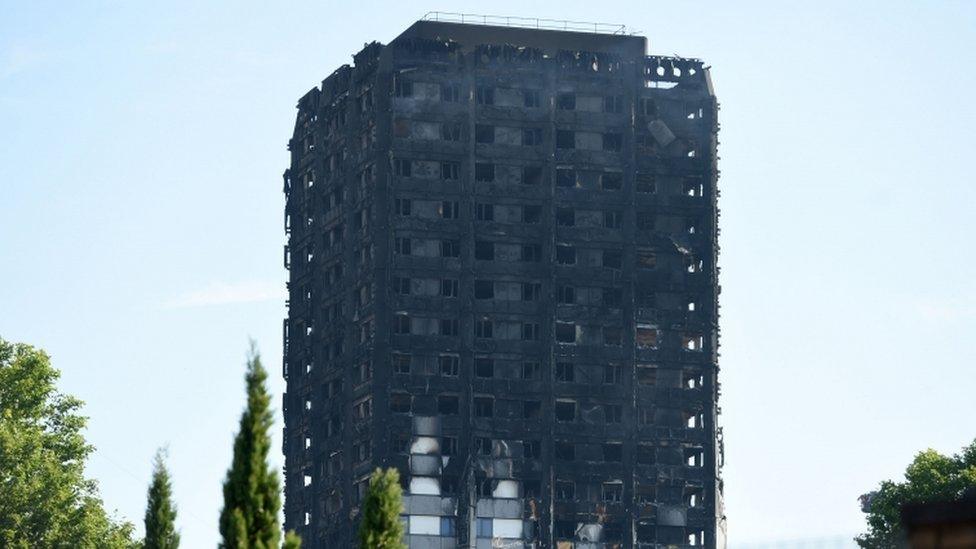
- Published2 July 2017
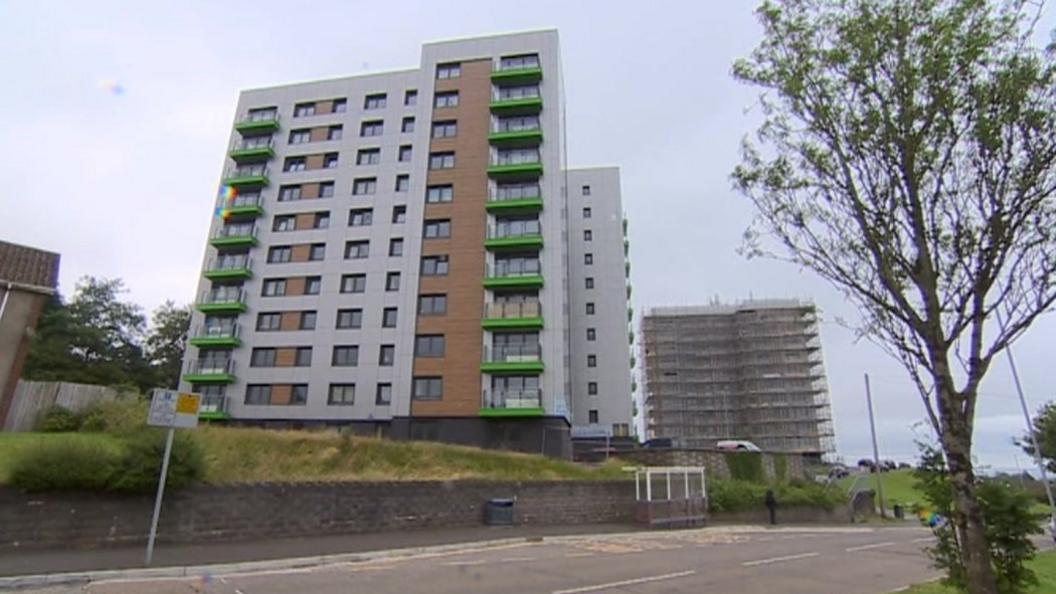
- Published1 July 2017
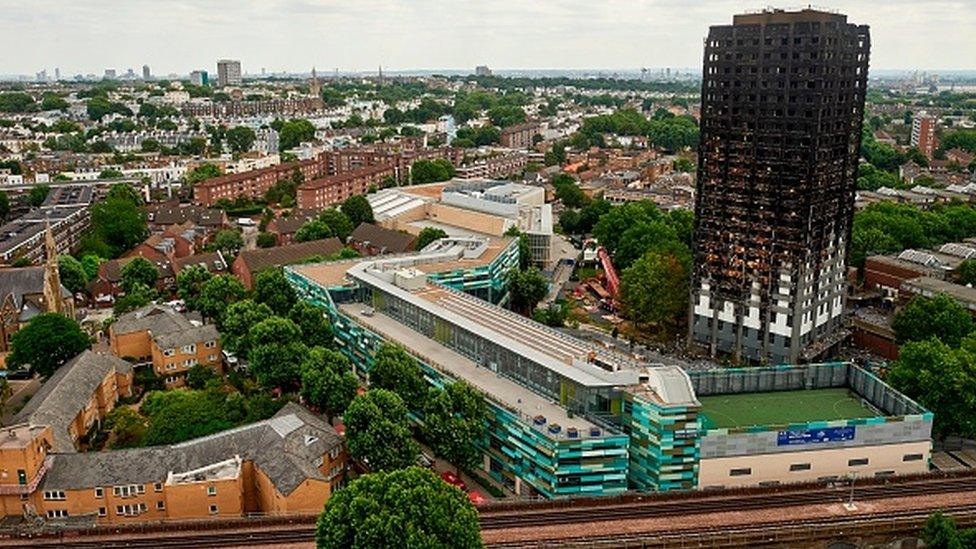
- Published30 June 2017

- Published19 July 2017
